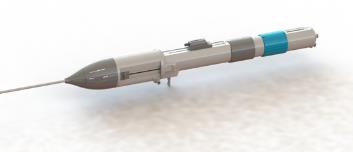The South San Francisco-based company has raised $15 million in a series B round to get its catheter-based solution for deep vein reflux into clinical trials.
June 25, 2019

Is there a more effective way to treat patients suffering from deep vein reflux (DVR)? South San Francisco-based InterVene is betting its BlueLeaf Endovenous Valve Formation System, a catheter-based solution, can tackle this unmet need.
To help with the development of the BlueLeaf system, the start-up raised $15 million in a series B round. The financing was led by new investor 3x5 Partners, who was joined by prior investors RiverVest Venture Partners, Boston Scientific, Correlation Ventures, and others.
InterVene said proceeds from the financing will be used to expand its clinical research program abroad, and to initiate trials in the U.S. via an IDE. The company said it also expects to further demonstrate safety and clinical effectiveness while “optimizing the BlueLeaf System and procedure in preparation for a subsequent pivotal study.”
“The [BlueLeaf Endovenous Valve Formation System] is the only interventional product that treats deep vein valves without an implant,” Jeff Elkins, COO, of InterVene, told MD+DI. “What [BlueLeaf] does is through endovascular or image-guided means is cut a valve from a patient’s own vein wall. Therefore, when these patients have nonfunctioning valves we go in and cut through the valves without leaving anything behind except the patient’s own autogenous tissue.”
The resulting “autogenous” valves aim to reduce retrograde blood flow and alleviate the symptoms associated with elevated venous pressures.
The BlueLeaf technique is predicated on the Maleti Neovalve open-surgical procedure but enables patients to avoid the trauma of open surgery, allows for multiple valves to be formed in a single procedure and mechanizes certain aspects of the technically-difficult open surgical procedure for ease of use and repeatability.
Elkins added, “there have been handfuls of valid, but very complicated surgeries that have been done over the last 50 years. Having said that, surgery is not a typical standard of care recommendation because, so few do it and because it’s so invasive.”
Elkins shares a strong connection with one of the company’s core investors - Boston Scientific. After all, it was the Marlborough, MA-based firm that acquired Veniti, a company Elkins helmed. Veniti has developed a stent system for treating venous obstructive disease.
“Boston Scientific invested in InterVene quite early and ultimately invested again,” he said. “I tend to think of Boston Scientific as the leader in [the] Endovenous [market]. We obviously know that Boston Scientific, Medtronic, and Abbott Laboratories are very big in cardiovascular, peripheral, and coronary. [However], Boston Scientific is probably the furthest out in front of venous because of their imaging offerings; because of their thrombectomy offerings; and because of their venous stents. Certainly with BTG they will also get a vena cava filter, as well as superficial reflux or superficial ablation offering. So, Boston Scientific covers all the bases right down to imaging.”
About 6.5 million people in the U.S. suffer from DVR and moderate to severe CVI. There is a tremendous need for therapy and investors understand that, the company noted.
“Venous intervention is hot,” Elkins said. “You are welcomed in to present to investors and strategics when you come in with venous. The reason is, is because venous has had a string of lucrative and successful exits which go back to VNUS Medical with superficial vein ablation being acquired by Covidien - now Medtronic owns that. Boston Scientific acquired my last company Veniti. Bard/Becton Dickinson has a PMA for a venous stent as well … it’s a perfect storm of exits, multiple platforms from superficial to thrombectomy to venous stents, and now deep veins.”
About the Author(s)
You May Also Like




